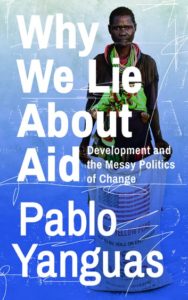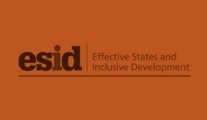| Bolivia | Nepal | Vietnam |
| Ghana | South Africa | Mozambique |
| Peru | Uganda | Myanmar |
| Zambia | Botswana | Sri Lanka |
| Kenya | Ethiopia | Mauritius |
| Tanzania | Cambodia | Turkey |
| Bangladesh | Liberia | Egypt |
| India | Malaysia | |
| Rwanda | Thailand |
Researching the politics of development
Governance

A country’s development depends on the effectiveness of its day-to-day governance: how capable it is of maintaining order and delivering services.
Development actors now recognise that earlier approaches to promoting ‘good governance’ often failed because they clashed with contextual realities in developing countries, including elite incentives to secure political survival.
Many developing countries have adopted institutions that are in line with ‘international best-practice’, but which fail to deliver improved levels of governance and development. Our research suggests that this gap between ‘form’ and ‘function’ can be explained by reference to political settlement dynamics.
Key findings
Promoting system-wide processes of public sector reform is only likely to work within political settlements where power is concentrated around a governing coalition. In more dispersed settlements, the pressures of political survival tend to undermine the durable relationships between politicians and bureaucrats required to sustain reforms.
The ideas of governing elites can also become aligned with key elements of governance reform. For example, notions of ‘self-reliance’ helped to build the capacity of revenue authorities in Kenya and Rwanda and the analogy between ‘military discipline’ and ‘fiscal discipline’ initially helped bureaucrats persuade President Museveni to reduce inflation-inducing levels of public expenditure.
We found a number of high-performing ‘pockets of effectiveness’ (PoEs) within even very weak governance contexts. These PoEs are most likely to merge within the economic technocracy and can help secure the conditions for development through ensuring macroeconomic stability and revenue generation. However, they tend to be biased towards neoliberal policy agendas and are unlikely to provide the solution for broader-based structural transformation or service delivery.
View more on pockets of effectiveness
Case study: Governance and the Three Cs
Context
Pockets of effectiveness (PoEs) such as central banks and revenue authorities require durable and coherent relations between rulers and bureaucrats. These are more likely to be sustained over time within concentrated as opposed to dispersed settlements. However, our comparison of Uganda and Rwanda shows that dominant leaders are not enough – elites also need to perceive a threat from the social foundations of their political settlement for them to support PoEs as part of a wider state-building effort.
Capacity
Pockets of effectiveness only offer a partial governance solution for delivering development. They are highly capable of delivering on ‘logistical policy challenges’, such as controlling inflation, which can be dealt with by relatively small numbers of highly-trained officials. But they are less likely to help solve more transactional policy challenges, such as improving the quality of service provision.
Coalitions
Pockets of effectiveness in countries like Ghana, Kenya, Uganda and Zambia are underpinned by coalitions of rulers and senior bureaucrats, and also of international actors who provide financial, technical and ideational support. This support needs to be extended beyond finance ministries to include state agencies capable of dealing with a broader range of challenges, including structural transformation.





